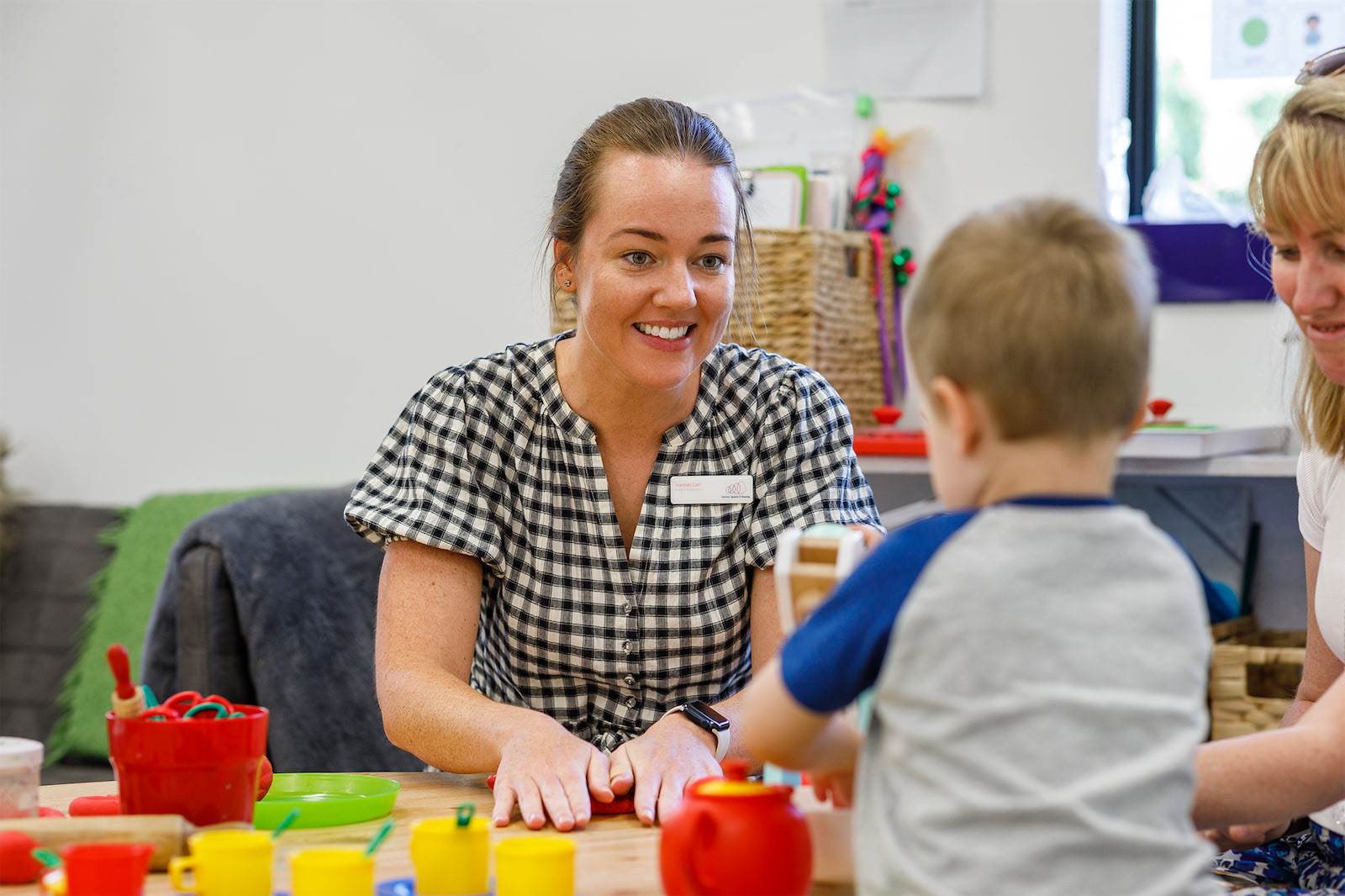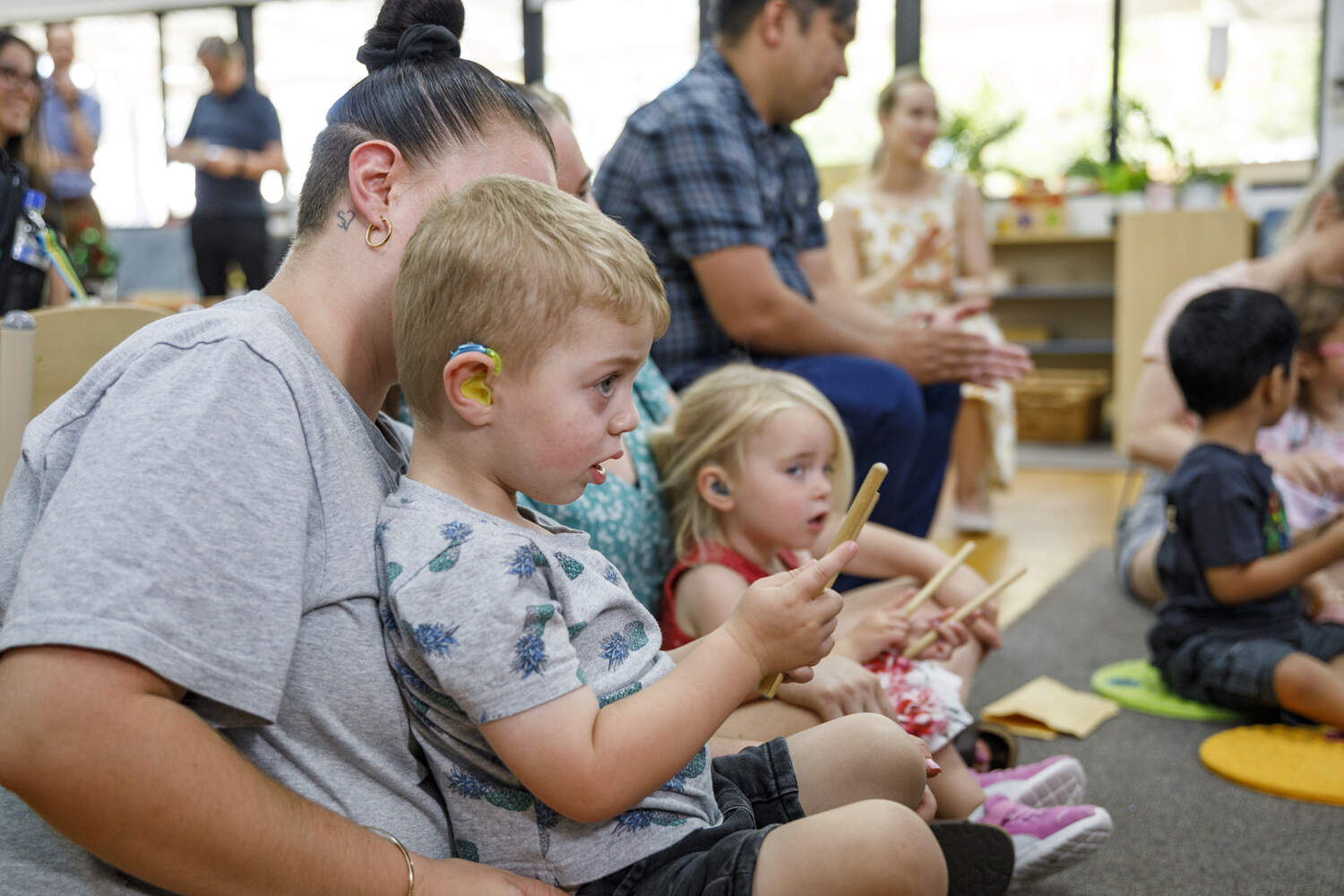



Specialist Speech Therapy
Our experienced speech pathologists work closely with families to create individualised treatment plans, focusing on enhancing communication skills and supporting overall development.
We use evidence-based practices and engaging, child-friendly activities to ensure effective and enjoyable therapy sessions.
TSH offers fee-based speech pathology assessments for children, with no referral needed.
All our speech pathologists are members of Speech Path Australia.


Our children’s speech pathology services include:
- 30–45-minute therapy sessions
- 60–90-minute assessment sessions
- Assessment and intervention in language delays in both receptive (what children understand) and expressive (what children say) language
- Literacy assessment and intervention
- Articulation and Phonology assessments and interventions that support overall speech clarity
- Stuttering assessment and intervention
- Low-tech AAC, such as communication boards and books
- Services to children 0-12 years of age
Frequently asked questions
Speech pathology involves assessing speech and language skills and providing therapy to remediate delays or disorders identified in the assessment.
Your child may need speech therapy if they exhibit speech, language. These can present as trouble speaking, listening, understanding conversations, reading, writing, communicating socially, or difficulties using their voice.
This is where our speech pathologists can help, by assessing your child in order to diagnose any issues (if any) your child may be experiencing and/or provide treatment.
Speech pathologists will help your child find and express the best way to communicate their needs. This can include forms of assisted communication using objects, signs and gestures associated with what your child is trying to communicate.
- Expressive language helps your child express their ideas, feelings and thoughts.
- Receptive language helps your child understand instructions, language and words.
Speech is how we say sounds and words. It includes how we produce the sounds in words, how fluently we are able to speak, and using our voice appropriately.
Language refers to the words we understand and use, and how we use them to share ideas and get what we want. This includes our vocabulary, ability to join words to form phrases and sentences, and grammar. As children get older, they also begin to join sentences to have a conversation and tell a story or explain something. This is called discourse.
Speech pathologists who work with children are trained to identify and treat the following areas:
- Phonology and articulation – how speech sounds are said.
- Semantics – learning names of objects and their meanings (vocabulary) and the development of a storage network for this vocabulary.
- Syntax – use of word and sentence structures.
- Narrative – the development of storytelling skills.
- Comprehension – the understanding of language.
- Pragmatics – the use of language for a range of purposes and the knowledge of conversational skills.
- Phonological awareness – the ability to consciously reflect or ‘tune into’ the sounds of our language. Phonological awareness is an important component of early reading success.
Literacy skills – reading and writing skills.
Direct service
- Individual sessions with the caregiver and child to coach parents on how to maximise speech and language learning in their daily routines at home.
- Formal and informal assessment of speech and language skills.
- Providing annual progress reports, or as required.
Indirect service
- Consulting with others, such as day care assistants, teachers, extended family etc on speech and language needs of the children.
Systems approach
- Linking up with outside agencies to provide and obtain up-to-date information.
- Collaborating with parents and outside agencies.
Got a question?
If you want to make an enquiry about a TSH service or program, please get in touch with our friendly team today. We also welcome enquiries from potential TSH partners.


